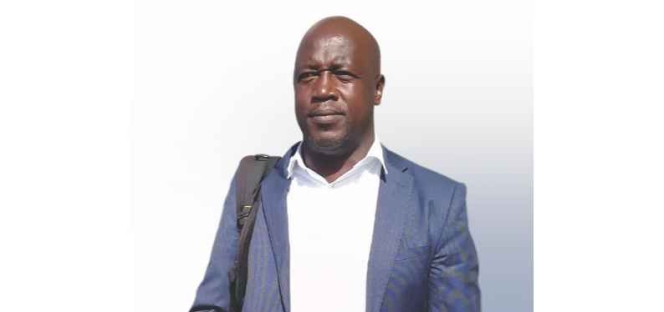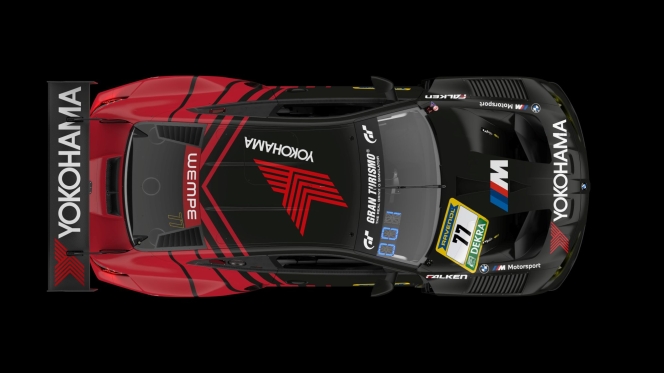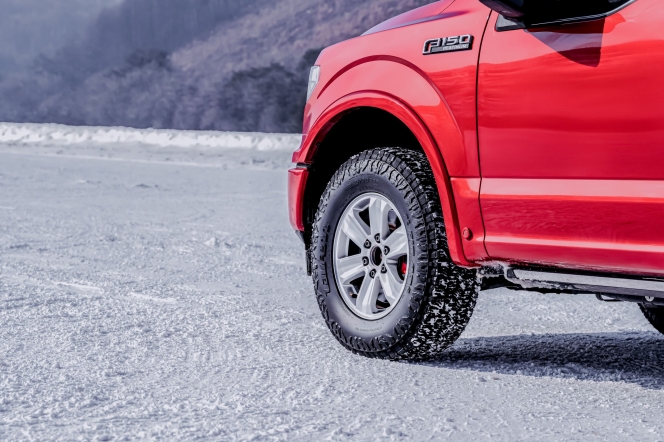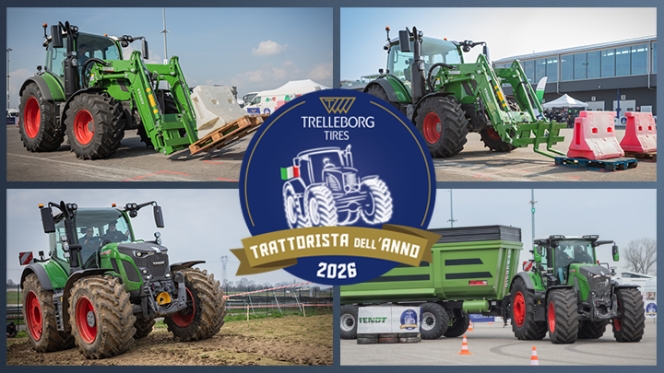- Vedanta Group
- Hindustan Zinc
- Aesir Technologies
- Prashuk Jain
- Vedanta Nico
- Nickel-Zinc batteries
- electric vehicles
- International Energy Agency
- IEA
SMART TECHNOLOGY IN TYRES – THE BONGO EDITION
- By Bobby Odhiambo
- December 28, 2020

Six currencies, with an estimated population of 184 million - the East African community exists around the Great Lakes Region. “The Cradle of Mankind” is what it is called. This region lies in the heart of Africa and is home to both flora and fauna as it may have existed in the primordial times, undisturbed – SMART.
Mobility has changed considerably in this region by the way the tyres here have found their way into this market. In 1998, Truck Tubeless Tyre Conversions began in Kenya and quickly spread out to the neighboring regions. Presently 95% of the tyres found in fleets are tubeless and there is 100% conversion rate on Passenger and 4x4 range of vehicles. It was the SMART thing to do. The millennium saw an influx of Fleet Management softwares, Tyre Management Contracts, with the help of Budini Tyre Management Software. Unprecedented tyre training, growing investments in tyre machinery, tools and accessories investments. Technology and processes peaked and the bubble burst.
On the tyre spectrum 12.00R20, which was the predominant tyre size, was replaced by the low profile 315/80R22.5 (not the 13R22.5) which continues to hog 60% of the truck tyre market. The 8.25R16 was replaced by the 265/70R19.5 and 295/80R22.5 (together with 12R22.5) replaced 11.00R20. On the tyre spectrum and front we were ahead of developed, space (nuclear) age countries like India and the Gulf where tubeless conversions were less and the predominant sizes remained to be 10.00R20 and 12.00R24 respectively.
Tubeless rims became the order of the day and even when Trilex Split rims (80 years technology) are still in use in the Gulf. For a market that churns out approximately 600,000 trucks tyre casings per year, tyre retreading is the environmentally SMART thing to do. The cold procured tread process replaced the hot casing damaging process. East Africa has not been left SMARTing in this field either.

What went wrong:
- Intelligent Organisations. Any intelligent system must be data-driven
The primary objective of any successful organisation is to analyse large pools of data accumulated over long periods of time in their areas of operations (This includes transporters, tyre importers and distributors and tyre manufacturers). Increasingly organisational decisions are NOT taken by managers’ intuition and common sense but algorithms and data derived electronically from recording of our interactions and experiences with customers. Selling tyres has ceased to be a contact sport it has degenerated in some quarters into a Nintendo like encounter.
Intelligent organisations normally SCALE (Sense, Comprehend, Act, Learn and Explain) their environment with managers/ owners / directors ceding authority over certain decisions while acquiring new capabilities and roles for themselves. As conjoined twins, SMART (Specific, Measurable, Achievable, Realistic, Timely) and SCALE goals must be matched.
Let me give illustration with a story. In Africa we love to do so. Reader’s discretion is advised!
A (SMART) priest arrived late at the foot of Mt. Kilimanjaro, Africa’s tallest mountain, for a climbing expedition the following day. Exhausted, he searched for a room in the nearest inn. Only one room was available which he was requested by the motel owner to share with a beautiful lady wearing a stunning fishy (SCALEy) dress who had arrived late for the same expedition. To make matters worse, there was only one mattress. The exhausted lady prepared and slept on one side of the mattress, while the honorable priest laid the sheet and slept on the cold floor two meters away. The following morning at the breakfast table the priest formally introduced himself to the beautiful lady as asked her where she was from. She on the other hand enquired of the priest as to his mission at the Kilimanjaro. “ I have come to climb and conquer this greatest mountain in Mother Africa,” he said proudly trying to impress her. She paused and after a sigh said to the priest in a low voice, “Tell me exactly how you intend to climb this mountain when you cannot SCALE up a six-inch mattress?!” Moral of the story: No matter how good your SMART goals are, you must act on SCALE-ing the heights.

- Smart Technologies portend a smart working force
Tony Nicolini – Founder of the Budini Tyre Software and Systems, puts it beautifully when he says “Technology is only as smart as the users want it to be.” The exponential growth of data capturing capability has not been matched by its harnessing and channeling into useful avenues largely because investments are low in the field of tyre education and tyre infrastructure. Having experience Tyre related trainings in different parts of the world, our region receives but a trickle of the much-needed skill laced training that would sharpen their senses in order to tyre SCALE better.
The three aspects related to Smart Tyre Technology are:
Smart transporters
Zul is a transporter who runs a successful bus company. Operating from the heart of Nairobi, to most parts of Kenya. He keeps meticulous records on all his tyre records. These records were the basis for decision making for a transport company that has had the least number of fatalities in the country. Zul represents about 5% of transporters in this region who have scrupulous, readily available data that is open to scrutiny not only by his own company but can be used by suppliers.
In 2012 I had a chance to visit Tyre Heaven, a company in Sao Paulo. They invited Nicolini (Budini) and me to visit their premises. With over 700 trucks and trailers, there were there only three persons working in the tyre department. Cradle-to-Grave tyre data is maintained for all tyres. Once or twice a year, like a pilgrimage, representatives major tyre suppliers congregate in the transport premises to tender openly for 8,000 tyres.
 Smart processes
Smart processes
Special Sales approaches to the market determine the success or failure or a sales person. Many transporters, tyre importers or dealers approach to own products with little comprehension on the conditions of use. Mismatch between tyres and vehicles, tyre and routes, have only added to the chagrin on the end-user. Professional ethics prohibit me from dwelling too much into these sales processes to end-users and dealers, but to say the least, these methodical approaches have no substitute. As a result of tyres being treated as a commodity, where price is the only point of discussion, SMART tyres with lipstick and high-heels have found their way into a hostile market that has unpaved roads, untrained staff and uncaring drivers in some instances.
The readers of this article may have had access to better tyre optimisation processes than the ones I will mention below. Yet I can say without a doubt now will match the dedication and follow-up that is offered by the Budini Tyre Management Systems.
- The Tyre Optimisation Process is a non-patented process that was arrived at by a team of tyre experts on casing (yet not tyre optimisation) in order to achieve the lowest cost per Kilometer in a particular fleet. Pocket Suit, Survey Web and TMS are worth a glance.
Feature Benefits and Evidence (FABEs) is the way tyres were sold, sadly price has over-shadowed all three since both the purchaser nor the seller are reluctant to discuss the matters relating to performance. Benchmarking of tyre mileages across fleets is more often than not misleading.
Smart sales people
Ajay, Yves, Mick and Tony belong to a fading rare breed of people who were tyre fleet problem solvers. These gate-keepers and well-trained mentors in process described above played and continued to give solutions and on-site training in the harsh environments. What is common about this people in how SMART or wise they are. It is the extremely long span of attention they dedicate in their line of duty. It is therefore worrying that today when the tyre is being treated as a commodity and not a Safety Engineering piece of equipment, Africa and Africans without secure gate keepers and anti-dumping laws will fall prey to fast talking sales persons with tik-tok attention spans. If I were to be the Chief Tyre General – Certain Tyres would only be sold on prescriptions.
In South Africa, it was uncommon for representatives of different companies to meet at a major transporter and conduct a joint scrap and claim analysis. Just like doctors conducting a post-mortem, sample casings from each brand would be analysed and reported before they would rest back for a Friday Brae and Beer. SMART. I know this may be happening in other parts of the word any it is the reason we now have the Radial Tyre Damage Book.
RFID, push alerts, Translogic tools, TPMS (Tire Pressure Monitoring Systems) are all example of Smart technologies that many sales persons, managers, owners and directors are aware of but are not capable of implementing just yet. However, training might be that essential key that unlocks the thirst for the much-needed necessities.
I end this article with the SMARTest thing I have heard this year and maybe for a long time. It comes from a great mind in Tyre Management “It does not matter how you record (label) tyres in whatever system you have….what matters is what you do with that tyre after that. A basic tyre system understood by all is the best way to involve others and come out with shining success. It beats even the tyre RFID systems - Marcio Olievera (Budini Systems – SMARTyre SCALER).

- Yokohama Rubber
- Yokohama ADVAN Tyres
- Nürburgring 24-Hour Race
- Nürburgring Langstrecken-Serie
- BMW M Motorsport
Yokohama Becomes BMW M Motorsport’s Official Tyre Partner For 2026 Nürburgring Events
- By TT News
- March 03, 2026

The Yokohama Rubber Co., Ltd., has entered into a new agreement to serve as the official tyre supplier for BMW M Motorsport, the division responsible for the brand's global racing endeavours. This collaboration will debut at the prestigious Nürburgring 24-Hour Race and throughout the Nürburgring Langstrecken-Serie in 2026.
This renewed partnership revives a historical connection between the two companies, who previously worked together on the same iconic circuit from 1980 to 1990. During that initial decade-long stint, their combined efforts secured two overall victories. After an interval of nearly four decades, they are reuniting for the current season to compete in the premier SP9 class, fielding the BMW M4 GT3 EVO. For this campaign, Yokohama will equip the vehicle with its high-performance ADVAN racing tyres, with the shared objective of capturing another overall win.

Beyond its tie-up with the BMW team, Yokohama Rubber continues its longstanding commitment to the Nürburgring. It will provide its tyres to numerous leading teams contesting both the endurance series and the 24-hour event this season. The company is focused on achieving an overall championship victory for a vehicle equipped with its YOKOHAMA brand tyres.
Franciscus Van Meel, CEO, BMW M GmbH, said, “We are excited to welcome YOKOHAMA as Official Partner of BMW M Motorsport for our Nürburgring programme. YOKOHAMA’s technical expertise and motorsport passion strengthen our drive for maximum performance and precision. Their support allows our team to focus fully on what defines BMW M Motorsport: pushing the limits on every lap. We look forward to a strong endurance season.”
Team: Schubert Motorsport
Class: SP9
Car: BMW M4 GT3 EVO
Tyres:
ADVAN A005 (for dry conditions); Sizes: front 300/680R18, rear 330/710R18
ADVAN A006 (for wet conditions); Sizes: front 300/680R18, rear 320/710R18
Race Schedule (as of date of this release)
March 14 (Sat): NLS Round 1
March 21 (Sat): NLS Round 2
April 11 (Sat): NLS Round 3
April 18 (Sat) –19 (Sun): Nürburgring 24-Hour Race (Qualifiers) , NLS Rounds 4 & 5
May 14 (Thu) –17 (Sun): Nürburgring 24-Hour Race
June 20 (Sat): NLS Round 6
August 1 (Sat): NLS Round 7
September 12 (Sat) –13 (Sun): NLS Rounds 8 & 9
October 10 (Sat): NLS Round 10
Second-Generation Laufenn X FIT AT2 All-Terrain Tyre Launched In US
- By TT News
- March 03, 2026

Hankook Tire has introduced the Laufenn X FIT AT2, a new addition to its all-terrain tyre lineup aimed at drivers who require durability and adaptability without compromising on everyday driving comfort. Positioned as an affordable option, this tyre is engineered to handle a mix of on-road and off-road conditions while delivering long-lasting value.
Building upon the foundation of its predecessor, the X FIT AT2 brings several performance upgrades. It features enhanced traction across varied landscapes, a 15 percent improvement in tread longevity and reliable handling in different weather conditions. The tyre is designed to fit a broad spectrum of light trucks and SUVs, with availability ranging from 15 to 22 inches to accommodate popular vehicle models in the market.
This launch reflects Laufenn’s ongoing strategy to diversify its offerings as it strengthens its presence in over 100 countries. Since its introduction in Europe, the brand has consistently expanded its range for both passenger vehicles and commercial applications, responding to shifting consumer needs. The X FIT AT2 reinforces this direction by providing a balance of rugged capability and composed road manners for those who frequently transition between highways and rougher terrain.
Engineered for resilience, the tyre incorporates a reinforced structure, including select sizes with three-ply sidewalls to resist cuts and impacts. Its tread design features directional and lateral grooves that enhance water dispersion and grip on slippery or loose surfaces. Additional protective elements such as offset shoulder blocks and rim guards help shield against debris and curb damage. A two-step deep sipe pattern promotes uniform wear, contributing to extended usability.
Certified with the Three-Peak Mountain Snowflake symbol, the X FIT AT2 offers dependable performance in dry, wet and snowy winter conditions. It comes with warranty coverage tailored to its sizing, offering 60,000 miles for P-metric versions and 50,000 miles for LT-metric options. With this release, Laufenn continues to round out its portfolio alongside existing lines such as the S FIT, G FIT and I FIT series.
KC Jensen, Vice President – U.S. Passenger Car and Light Truck Sales, Hankook Tire America Corp, said, “The X FIT AT2 represents the next step forward for the Laufenn brand as we continue to deliver practical, dependable solutions for everyday drivers who also want the freedom to explore off-road. Building on the success of the original X FIT AT, this second-generation tyre offers a stronger blend of durability, versatility and everyday comfort at an accessible value.”
Comerio Ercole To Showcase Calendering And Digital Solutions At Two Premier 2026 Trade Fairs
- By TT News
- March 03, 2026

Comerio Ercole is set to make a significant impact on the global stage in 2026 with its participation in two major industry exhibitions. The company will showcase its latest advancements at both Chinaplas 2026 and Tire Technology Expo 2026, highlighting a comprehensive portfolio designed to enhance precision, productivity and sustainability in polymer processing.
At Tire Technology Expo, Comerio Ercole will present integrated systems tailored for the tyre industry, focusing on high-performance rubber calendering and digital intelligence. A flagship solution is the TRIPLE 4-roll calendering unit. Its innovative "S" configuration provides remarkable flexibility by enabling the processing of both textile and steel cord, as well as the production of rubber sheeting, all within a single line. The system’s capability for simultaneous lamination ensures high precision and product stability while minimising defects. Downtime is a critical factor in tyre production, and the patented FASTEEL system directly addresses this. By automating the steel cord change process, it dramatically reduces changeover time from hours to minutes, allowing the line to continue running during preparation and thereby maximising plant availability and operator safety. Following the calendering process, the SUPERCUT system guarantees clean, precise transversal cuts for both steel and textile-reinforced rubber, integrating guillotine and high-speed rotary blades to minimise waste and streamline downstream winding.
Simultaneously, at Chinaplas 2026, taking place in Hall 2.1 at Stand C85, the company will place a strong emphasis on its patented HYDROPLUS concept for PVC and plastic calendering. This technology suite is engineered to deliver micrometric precision and robust process stability through advanced hydraulic controls. Central to this is HYDROGAP, a system that achieves exceptional thickness uniformity with high-resolution gap positioning. Complementing this are HYDROSAFE, which ensures rapid roll separation for ultimate protection, and HYDROTHERM, a feature that intelligently compensates for thermal expansion to maintain precise gap settings during fluctuating operational temperatures.
Beyond mechanical innovation, the company is driving digital transformation with its CELEMETRY and MINERV-AI platforms. CELEMETRY focuses on sustainability by converting production data into actionable insights for environmental reporting and energy optimisation. MINERV-AI captures and standardises operational expertise through artificial intelligence, supporting more effective maintenance protocols, training procedures and overall operational consistency. Through these combined efforts at both exhibitions, Comerio Ercole is demonstrating a holistic approach to advancing the plastics, rubber and tyre industries.
Trelleborg Tires And Fendt Partner For 2026 Tractor Driver Of The Year Event
- By TT News
- March 02, 2026

The seventh edition of Trelleborg Tires’ Tractor Driver of the Year competition took place at the Cremona Circuit in Italy on 28 February 2026, drawing 50 skilled participants from across the nation. Held at a venue renowned for its professional standards, the event has become a fixture in the agricultural calendar, offering a platform for drivers to demonstrate their expertise while experiencing advanced tyre technology in practical scenarios. After a demanding day of challenges, Francesco Coppe emerged victorious, distinguished by his exceptional precision and versatility across the various disciplines.
The competition featured a series of exercises designed to assess core abilities, including manoeuvring, loader operation, reverse driving and trailer handling, culminating in a field regularity test. Throughout these tasks, participants directly observed the benefits of Trelleborg’s ProgressiveTraction technology, which aims to boost traction, reduce soil impact and enhance overall efficiency. This year, Fendt joined as the technical partner, supplying the machinery for the event. The tractors used, such as the Fendl 300 Vario Gen5, 500 Vario Gen4 and 800 Vario Gen5 models introduced in 2025, exemplified how modern agricultural engineering supports operators in achieving high performance with comfort and ease, both on road and in the field.


Daniela Gambatesa, Marketing Manager Italy, Trelleborg Tires, said, “The ‘Tractor Driver of the Year’ once again confirms its position as a landmark event for the agricultural sector: a unique opportunity to celebrate expertise, innovation and professionalism. This 7th edition recorded a remarkable participation of tractor drivers, highlighting the growing importance of the initiative. A key highlight of the event was the new ‘5,000 Hours of Guaranteed Performance’ campaign dedicated to ProgressiveTraction® treads, originally launched in July 2025 and now featuring a customised look for Fendt tractors equipped with VarioDrive technology. This initiative allows us to prove in real working conditions the long-term durability and efficiency of our tyres, offering tangible support to agricultural professionals in their daily operations. The collaboration with Fendt as technical partner further reinforces our shared commitment to excellence, combining advanced technology with high-performing solutions for the industry.”
Silvia Uderzo, Advertising & Sales Promotion Specialist, Fendt Italia, said, “Fendt has believed in the ‘Tractor Driver of the Year’ project since its early editions, reflecting the trust and importance we attribute to this initiative. Taking part again this year represents a valuable opportunity to enhance the skills of tractor drivers and to demonstrate how the technology, performance and comfort of our machines play a decisive role in improving operational efficiency. The partnership with Trelleborg Tires confirms our shared commitment to delivering increasingly high-performing and sustainable solutions to agricultural professionals, combining innovation with close attention to their real operational needs.”







Comments (0)
ADD COMMENT